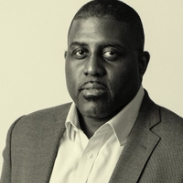 Reuters/Rogan Ward Reuters/Rogan Ward🇿🇦 Mangosuthu Buthelezi, leader of South Africa’s Inkatha Freedom Party, died this weekend at the age of 95. His long legacy in the country’s apartheid-era freedom struggles and post-apartheid politics generated a wide range of opinions about his impact. President Cyril Ramaphosa described him as an “outstanding leader”. During apartheid, Buthelezi campaigned alongside the African National Congress (ANC) for Nelson Mandela’s release but disagreed with the ANC on armed struggle and international sanctions which he believed would hurt Black South Africans. South Africa’s Mail & Guardian praised him as an accomplished orator, historian and custodian of Zulu tradition and culture, but also noted he was “perhaps one of the most contradictory figures in South African politics.” 🇰🇪 Tuskys was one of East Africa’s largest supermarket chains with around 65 stores in Kenya and Uganda but over the last few months court filings have revealed its once-envied rapid expansion narrative was something of a mirage, as Brian Wasuna reports for Nation newspaper. It got so bad in mid-2020, when Tuskys owed millions of dollars to suppliers and landlords, that some unpaid staffers literally took matters into their own hands by helping themselves to stock and cash from the till. 🇸🇳 Contemporary African filmmakers — including the late Senegalese auteur Ousmane Sembene — who emerged after independence have largely focused on undoing colonial perspectives that portray Africa as uncivilized and colonizers as saviors. Ana Carbajosa writes in African Arguments that while the Eurocentric depiction of the image of Africa as uncivilized is being corrected and a call for reappropriation of the African narrative amplified, there is still a long way to go in audiovisual restitution. 🌍 Energy planning and management is key to ensuring that climate-related risks are averted as the world shifts towards net zero, writes Giacomo Falchetta in The Conversation. He notes that hydropower — currently Africa’s largest source of renewable energy — depends on water availability and could be affected by extreme weather events like droughts and floods. He concludes that power system planners must “work with a robust framework that accounts for the inter-dependencies between hydropower, water availability and climate change in sub-Saharan Africa.” 🇰🇪 Kenya offered to send a United Nations-backed police mission to Haiti this year following a plea by its interim prime minister to the international community last October to send an armed force to fight armed gangs. However, critics have expressed fears of foreign intervention and mistrust of Kenyan forces over their graft and human rights abuses record. UN Secretary-General Antonio Guterres and the United States have amplified the plea to help restore order in the Caribbean nation. | 







